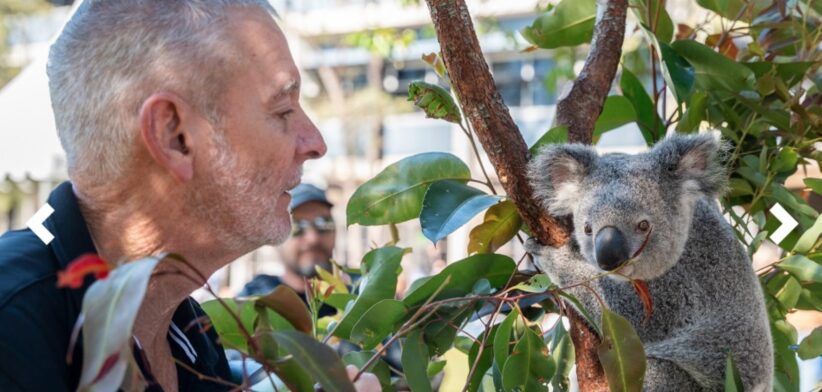A world-first vaccine to protect koalas has been approved for use by Australia’s veterinary medicine regulator after 10 years of work by Queensland researchers.
Developed by the University of the Sunshine Coast, the chlamydia vaccine is a major step in the fight against one of the greatest threats to the long-term survival of Australia’s iconic marsupial.
Professor of Microbiology Peter Timms said researchers at UniSC’s Centre for Bioinnovation had spent more than 10 years developing the single-dose vaccine to protect koalas from the disease which could cause painful urinary tract infections, infertility, blindness and even death.
“UniSC was determined to do the hard yards to move the project from research to this vital next stage – a high-quality, veterinary-approved product that can now be used in wildlife hospitals, veterinary clinics, and in the field, to protect the nation’s most at-risk koalas,” Professor Timms said.
“We knew a single-dose vaccine – with no need for a booster – was the answer to reducing the rapid, devastating spread of this disease, which accounts for as much as half of koala deaths across all wild populations in Australia.”
He said some individual colonies were edging closer to local extinction every day, particularly in South-East Queensland and New South Wales, where infection rates within populations were often around 50 percent and in some cases could reach as high as 70 percent.
Professor Timms said the Australian Pesticides and Veterinary Medicines Authority (APVMA) had recently approved the vaccine for production and widespread use under its minor use category.
He said, until now, antibiotics were the only treatment available for koalas infected with chlamydia, but they could disrupt a koala’s ability to digest eucalyptus leaves – its sole source of food – leading to starvation and, in some cases, death.
“They also often fail to prevent future infection, leaving populations vulnerable.”
UniSC Vice-Chancellor and President Professor Helen Bartlett said that the innovative vaccine highlighted the University’s strategic focus on working collaboratively to find solutions to some of the world’s most pressing ecological and health challenges.
“This includes leading research in the rapid diagnosis and prevention of infectious diseases in humans and animals,” Professor Bartlett said.
“Chlamydia remains one of the major threats to Australia’s koalas, alongside habitat destruction. This vaccine bridges the gap between discovery and real-world application, translating to a tangible, game-changing product that promises to ensure a future for the species.”








